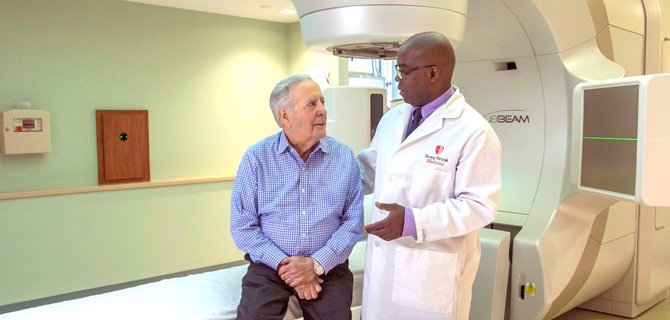Total body irradiation (TBI) with megavoltage photon beam is most commonly used as part of the conditioning region for bone marrow transplantation, which is used in the treatment of variety of diseases, such as leukemia, aplastic anemia, lymphoma, multiple myeloma, autoimmune diseases and inborn errors of metabolism. The role of TBI is to destroy the recipient's bone marrow and tumor cells, and to immunosuppress the patient sufficiently to avoid rejection of the donor bone marrow transplant. Usually, the patient undergoes a chemotherapy conditioning program before the TBI and bone marrow transplant. Although chemotherapy alone can be used as a conditioning regimen, the addition of TBI is considered beneficial for certain diseases and clinical conditions.
In Stony Brook's Department of Radiation Oncology, TBI is delivered using a 21EX linear accelerator through anterior and posterior fields in a standing upright position at the TBI distance. A special treatment room is designed for large-field irradiation. With the patient standing in an upright position, the radiation oncologist can shield certain critical organs from x-rays and spare surrounding tissues by boosting them with electrons using TBI. For example, a dose to the lung tissue can be reduced using lung blocks while the chest wall under the blocks can be boosted with electrons of appropriate energy.


